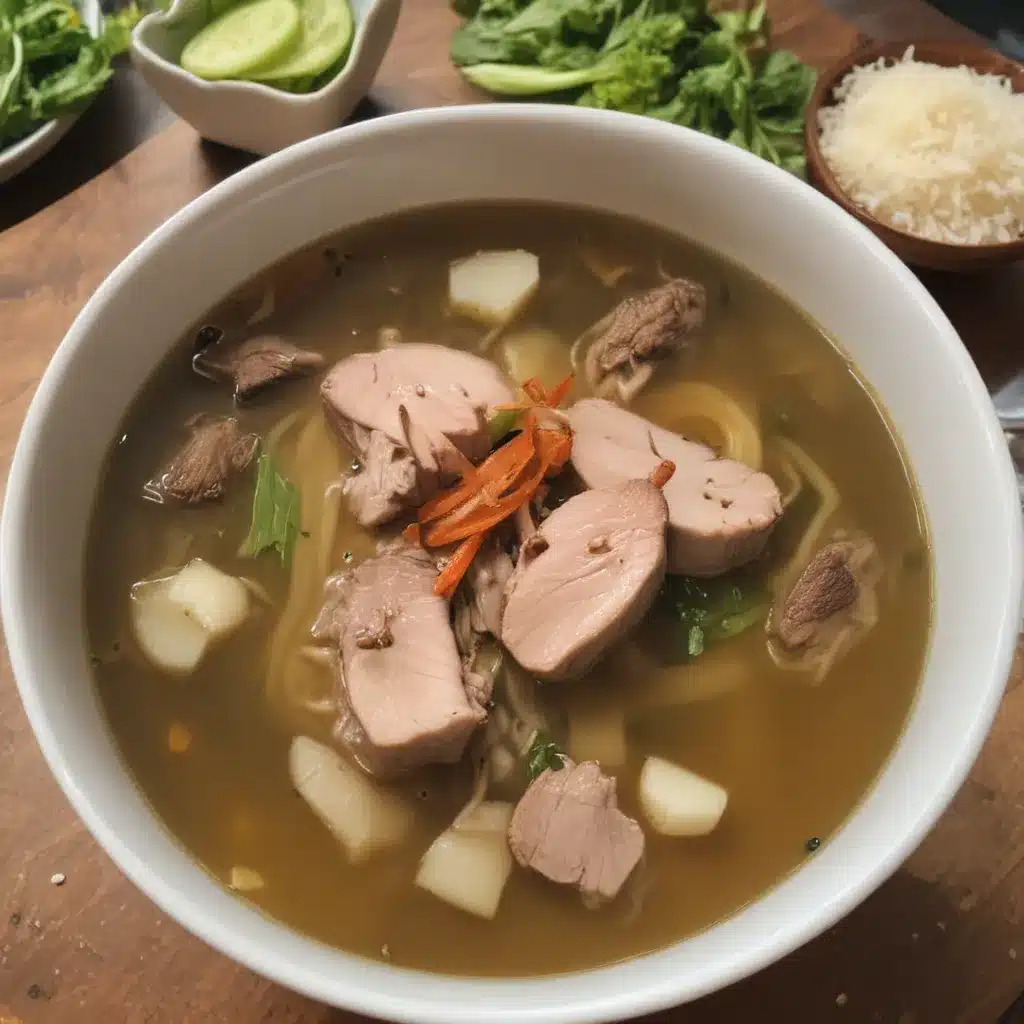
The Allure of Oritang: Diving into the World of Korean Duck Soup
As a self-proclaimed foodie and seasoned traveler, I’ve always been drawn to the rich tapestry of global cuisines. But there’s something about the unassuming yet utterly captivating world of Korean cuisine that has always piqued my interest. And today, I want to take you on a culinary adventure that will transport you straight to the heart of Boston’s vibrant Korean food scene – the enchanting realm of oritang, or Korean duck soup.
Unlocking the Secrets of Oritang: A Medley of Flavors and Tradition
Now, I know what you’re thinking – duck soup? Isn’t that just a basic broth with a few slices of waterfowl floating around? Well, my friend, prepare to have your mind blown. Oritang is so much more than that. It’s a symphony of flavors, a harmonious dance between the savory, the sweet, and the subtly complex.
When you sit down to a steaming bowl of oritang, the first thing that strikes you is the depth of the broth. It’s a labor of love, simmered for hours, if not days, to extract every last ounce of flavor from the duck and a carefully curated selection of aromatic vegetables and spices. The result is a broth that’s rich, velvety, and infused with the essence of the Korean peninsula.
But the real magic happens when you take that first sip. The warmth envelops you, and the flavors unfold like a well-choreographed ballet. The tender duck meat melts on your tongue, while the perfect balance of savory, sweet, and slightly pungent notes from the various ingredients creates a symphony in your mouth. It’s a culinary experience that transcends mere sustenance – it’s a journey of the senses, a celebration of the art of Korean cooking.
Oritang: A Reflection of Korean Culture and History
Now, you might be wondering, where does this enchanting dish come from? Well, the origins of oritang can be traced back to the rich tapestry of Korean culinary traditions, which have been shaped by the country’s diverse landscapes, climate, and cultural influences over centuries.
In the rural regions of Korea, where resources were often scarce, resourcefulness and ingenuity were the keys to survival. Farmers and foragers would scour the land for whatever ingredients they could find, and the humble duck became a staple protein, prized for its versatility and ability to thrive in a variety of environments.
But oritang is more than just a practical dish – it’s a reflection of the deep-rooted respect Koreans have for the natural world and the cyclical nature of life. The slow, meticulous process of preparing oritang is a testament to the Korean reverence for patience, attention to detail, and the belief that the best things in life are worth waiting for.
Oritang in Boston: A Culinary Bridge Between Cultures
As I immerse myself in the vibrant Korean food scene of Boston, I can’t help but marvel at the ways in which this traditional dish has been embraced and interpreted by the city’s diverse culinary landscape. Here, at Korean Garden Boston, I’ve had the privilege of savoring oritang that truly captures the essence of the dish, while also showcasing the innovative spirit of the city’s talented chefs.
One of the things that fascinates me about oritang in Boston is how it serves as a cultural bridge, bringing together the rich heritage of Korean cuisine and the dynamic, open-minded culinary sensibilities of the city. Chefs here have been known to experiment with the classic recipe, infusing it with local ingredients or adding their own unique twists, all while staying true to the core principles that make oritang such a beloved and revered dish.
Oritang: A Sensory Experience Like No Other
As I sit here, sipping my steaming bowl of oritang, I’m transported to a different time and place. The aroma of the broth, the tender duck meat, the perfectly cooked vegetables – it’s a sensory experience that transcends mere sustenance. With every spoonful, I’m reminded of the rich tapestry of Korean culinary traditions, the ingenuity and resourcefulness of the people, and the universal power of food to bring us together.
So, if you find yourself in Boston, seeking a culinary adventure that will warm your soul and ignite your senses, I urge you to seek out oritang. Immerse yourself in the flavors, the stories, and the traditions that make this dish so special. Who knows, it just might become your new favorite way to beat the chill of a New England winter.
